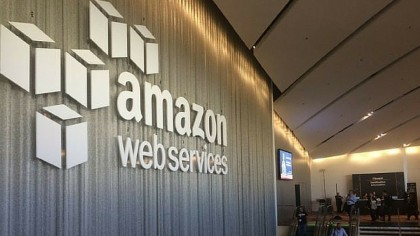How will open source AI change the tech industry?
Big tech players' AI APIs will have a huge effect on IT
What is the OpenAI project?
Elon Musk is getting involved in AI, too, by supporting OpenAI, a non-profit research company focused on advancing digital intelligence for the common good. "Elon Musk has launched the OpenAI project with a star-studded list of backers – Palantir CEO Peter Thiel, LinkedIn founder Reid Hoffman and Y Combinator president Sam Altman," says an impressed Jones.
OpenAI is headed up by machine learning expert Ilya Sutskever, ex-Google Brain Team member, and has just opened the OpenAI Gym in beta to help developers working with 'reinforced learning', a type of machine learning that's central to AI. Essentially, it's about getting software to alter its behaviour in a dynamic environment in order to get a reward (you can't give Siri a biscuit every time she 'found this on the web').

What does this mean for the IT industry?
The arrival of AI means a changing of the guard in the tech industry, with disruption, innovation – and the complete domination of the cloud. Standalone data analytics platforms? No need. Expensive infrastructure? Ditto. Expertise, not investment, will become king. That, and superfast broadband.
"It will ultimately help to drive innovation and growth, and we could see new business models emerge," says Palermo, who thinks that Amazon's entry into the AI market is especially interesting given the unbridled success of Amazon's AWS.
"As with cloud before it, Amazon may start renting time on Orbeus by the hour so that knowledge workers can work on a specific project," he adds. "This will help to normalise the use of AI and cognitive capabilities and greatly enhance our ability to process information." However, reshaping computing does mean some pain-points.
The death of the black box
You need computing power and analytics? AI APIs have the answer. "Any task currently performed by a costly black box AI platform, such as identifying where to drill for oil, predicting disease outbreaks, optimising scientific experiments to develop new products, and predictive maintenance, can now be done in-house," says Jones. Crucially, a business using these AI APIs will maintain complete control and oversight of its data.

How disruptive could AI APIs be?
Very. The kind of expertise most companies – especially startups – only dreamed of will be available instantly, online, 24/7. Accessing the world's most advanced computers via these open platforms will cost only the price of a data scientist's salary or consultancy fee. "This is very important for a lot of the world's businesses, and they need to take it seriously," says Jones. "If its true potential is realised, it will unleash a new generation of innovative startups that apply the latest AI techniques to disrupt the establishment."
Are you a pro? Subscribe to our newsletter
Sign up to the TechRadar Pro newsletter to get all the top news, opinion, features and guidance your business needs to succeed!
The intelligent future
For industries already migrating to the cloud at an alarming rate, AI raises the stakes even further. We already inhabit a world where the cloud's scalable storage has enabled startups like Twitter, Spotify, Netflix and WhatsApp to challenge entrenched big players. By making the very latest AI open source and available to all online, the likes of Google, Facebook, Amazon and IBM could help create a new wave of businesses that harness data. That puts data analytics platforms, pricey IT infrastructure and storage devices on borrowed time.
Jamie is a freelance tech, travel and space journalist based in the UK. He’s been writing regularly for Techradar since it was launched in 2008 and also writes regularly for Forbes, The Telegraph, the South China Morning Post, Sky & Telescope and the Sky At Night magazine as well as other Future titles T3, Digital Camera World, All About Space and Space.com. He also edits two of his own websites, TravGear.com and WhenIsTheNextEclipse.com that reflect his obsession with travel gear and solar eclipse travel. He is the author of A Stargazing Program For Beginners (Springer, 2015),
